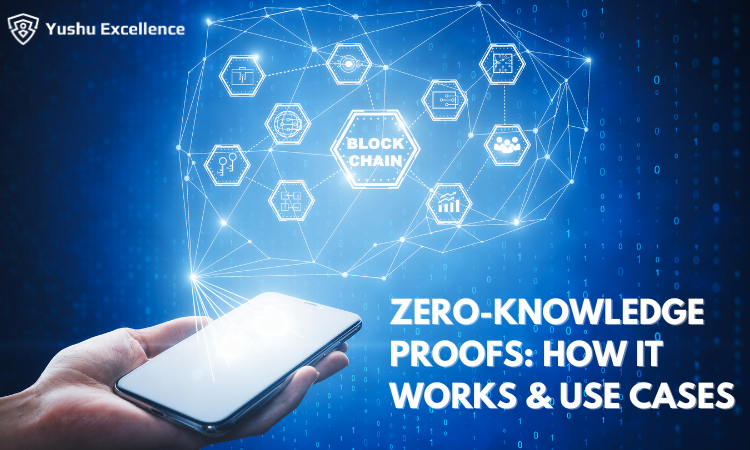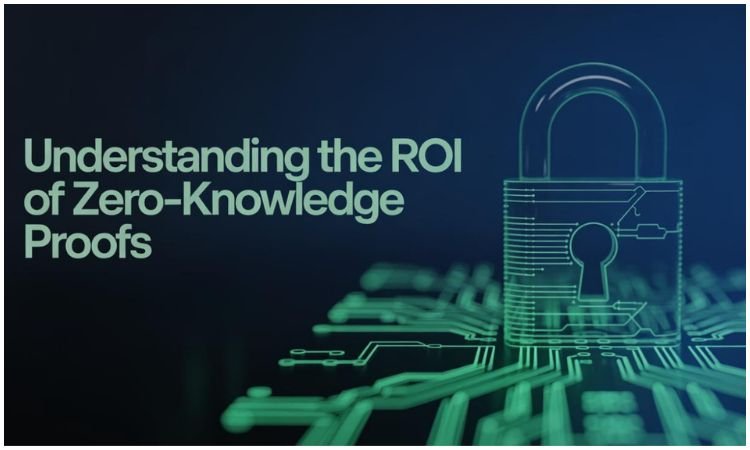Zero-Knowledge Proofs: How IT Works & amp; Use Cases In 2025
The inherent transparency of blockchains provides an advantage in many situations. Several smart contract use cases require privacy. They need privacy due to various business or legal reasons. It uses proprietary data as inputs to trigger a smart contract’s execution.
In addition, we show how Yashu Excellence allows for the creation of privacy-preserving oracle networks. It can prove that data came from a specific web server in a confidential and compatible manner.
A Zero-Knowledge Proof (ZPK), also called a Zero-Knowledge Protocol, is nothing but a mathematical technique. It can verify the truth of information without revealing the information itself. Researchers from MIT first introduced this method in a 1958 paper.
Because one should be able to generate proof of some statement. Only when in possession of certain secret information connected to the statement. The verifier, even after being convinced of the statement’s truth, should remain unable to prove the statement to third parties.
Zero-knowledge proofs demand an interaction between the prover and the verifier. The interaction is usually the selection of one or more random challenges by the verifier. The random origin of these challenges, together with the prover’s successful responses to them.
A popular example to illustrate the basic idea behind ZKPs is as the following:
Suppose you (the prover) have a color-blind friend (the verifier). He cannot distinguish a green and a red ball from each other (have zero knowledge about whether the balls are different colors). You need to prove that the colors of the balls are different.
But your friend needs something more than your words to be convinced. A ZKP method for this problem would be like this:
A series of cryptographic algorithms are used in the real-world applications of ZKPs. It is used to enable the verification of a computational statement.
For instance, using ZKP methods, a receiver of payment can verify that the payer has sufficient balance in their bank account. And he does not get any other information about the payer’s balance.
A zero-knowledge proof (ZKP) method must satisfy these criteria:
The information provided by the prover is true. Then a ZKP method must enable the verifier to verify that the prover is telling the truth.
The information provided by the prover is false. Then a ZKP method must allow the verifier to refute that the prover is telling the truth.
The method must reveal to the verifier nothing else than whether the prover is telling the truth or not.
There are two main types of zero-knowledge proofs:
In this type of ZKP, the prover and the verifier interact several times. The verifier challenges the prover who provides replies to these challenges. The prover has to convince the verifier.
In this type of ZKPs, proof delivered by the prover can be verified by the verifier only once at any time. This type of ZKPs requires more computational power than interactive ZKPs.
There are various implementations of ZKPs. Each has its trade-offs of proof size, prover time, verification time, and more. They include:
SNARKs stand for “succinct non-interactive argument of knowledge”. They are small in size and easy to verify. They generate a cryptographic proof using elliptical curves. It is more gas-efficient than the hashing function method used by STARKS.
STARK stands for “scalable transparent argument of knowledge”. STARK-based proofs require minimal interaction between the prover and the verifier. They are much faster than SNARKs.
Bulletproofs are short non-interactive zero-knowledge proofs that require no trusted setup. They are designed to enable private transactions for cryptocurrencies.
There are many zero knowledge proof applications. It protects data privacy in a diverse set of cryptography use cases, such as:
The transparency of public blockchains such as Bitcoin and Ethereum enables public verification of transactions. However, it also implies little privacy and can lead to the deanonymization of users.
Zero-knowledge proofs can introduce more privacy to public blockchains. For instance, the cryptocurrency Zcash is based on a Zero-Knowledge Succinct Non-Interactive Argument of Knowledge (zk-SNARK). It is a type of zero-knowledge cryptographic method.
Another example is the Zero-Knowledge Scalable Transparent Argument of Knowledge (zk-STARK). It is used in the Ethereum blockchain and provides privacy and scalability.
ING uses ZKPs that allow customers to prove that their secret number lies in a known range. For example, a mortgage applicant can prove that their income is in the range without revealing their exact salary.
ZKPs can allow voters to vote anonymously and verify that their vote was included in the final tally.
ZKPs are used to authenticate users without exchanging secret information such as passwords. For example, a ZKP-based identity solution could enable a person to verify that they’re a citizen of a country. They do not have to provide their passport details.
ZKPs can allow the owner of a machine learning algorithm. It can convince others about the results of the model. They do not have to reveal any information about the ML model itself.
Verifiable computations through methods such as zk-Rollups, and Validiums. They enable secure and scalable layer 2s. They use layer 1s such as Ethereum as a settlement layer. They can provide dApps and users with faster and more efficient transactions.
The transparent nature of blockchain networks helps the privacy-preserving design of zero-knowledge proofs. Enterprises and institutions can benefit from the best of both worlds. They can keep their internal data sets private. While still leveraging them in the reliable execution environments of smart contract applications.
Their processes have a professional background advising companies in their digital transformation.









